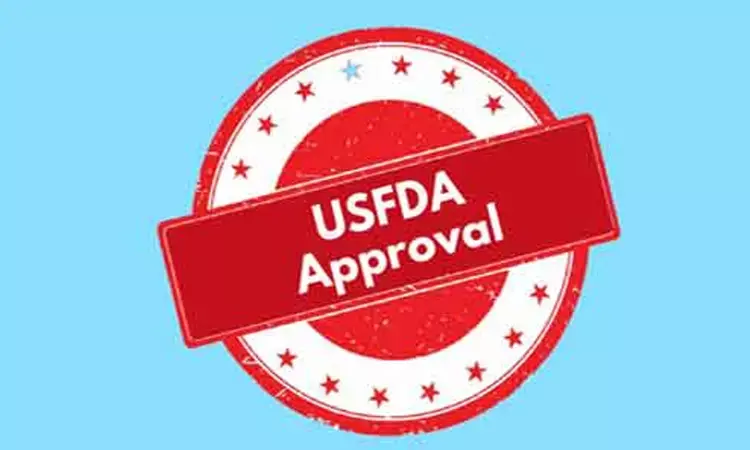- Home
- Medical news & Guidelines
- Anesthesiology
- Cardiology and CTVS
- Critical Care
- Dentistry
- Dermatology
- Diabetes and Endocrinology
- ENT
- Gastroenterology
- Medicine
- Nephrology
- Neurology
- Obstretics-Gynaecology
- Oncology
- Ophthalmology
- Orthopaedics
- Pediatrics-Neonatology
- Psychiatry
- Pulmonology
- Radiology
- Surgery
- Urology
- Laboratory Medicine
- Diet
- Nursing
- Paramedical
- Physiotherapy
- Health news
- Fact Check
- Bone Health Fact Check
- Brain Health Fact Check
- Cancer Related Fact Check
- Child Care Fact Check
- Dental and oral health fact check
- Diabetes and metabolic health fact check
- Diet and Nutrition Fact Check
- Eye and ENT Care Fact Check
- Fitness fact check
- Gut health fact check
- Heart health fact check
- Kidney health fact check
- Medical education fact check
- Men's health fact check
- Respiratory fact check
- Skin and hair care fact check
- Vaccine and Immunization fact check
- Women's health fact check
- AYUSH
- State News
- Andaman and Nicobar Islands
- Andhra Pradesh
- Arunachal Pradesh
- Assam
- Bihar
- Chandigarh
- Chattisgarh
- Dadra and Nagar Haveli
- Daman and Diu
- Delhi
- Goa
- Gujarat
- Haryana
- Himachal Pradesh
- Jammu & Kashmir
- Jharkhand
- Karnataka
- Kerala
- Ladakh
- Lakshadweep
- Madhya Pradesh
- Maharashtra
- Manipur
- Meghalaya
- Mizoram
- Nagaland
- Odisha
- Puducherry
- Punjab
- Rajasthan
- Sikkim
- Tamil Nadu
- Telangana
- Tripura
- Uttar Pradesh
- Uttrakhand
- West Bengal
- Medical Education
- Industry
First treatment for hypoplasminogenemia receives FDA approval

USA: The U.S. Food and Drug Administration approved Ryplazim (plasminogen, human-tmvh) for the treatment of patients with plasminogen deficiency type 1, also referred to as hypoplasminogenemia, a disorder that can impair normal tissue and organ function and may lead to blindness.
"Until now, there were no FDA-approved treatment options for patients with plasminogen deficiency type 1," said Peter Marks, M.D., Ph.D., director of FDA's Center for Biologics Evaluation and Research. "Today's approval helps address an unmet medical need for individuals affected by this rare genetic disease."
Individuals with this disease lack a protein called plasminogen, which is responsible for the ability of the body to break down fibrin clots. Plasminogen deficiency leads to an accumulation of fibrin, causing the development of growths (lesions) that can impair normal tissue and organ function and may lead to blindness when these lesions affect the eyes.
The active ingredient in Ryplazim is plasminogen, purified from human plasma. Treatment with Ryplazim helps to increase the plasma level of plasminogen - enabling a temporary correction of the plasminogen deficiency and reduction or resolution of the lesions.
The effectiveness and safety of Ryplazim is primarily based on one single-arm, open-label (unblinded) clinical trial enrolling 15 adult and pediatric patients with plasminogen deficiency type 1. All patients received Ryplazim administered every two to four days for 48 weeks. The effectiveness of Ryplazim was demonstrated by at least 50% improvement of their lesions in all 11 patients who had lesions at baseline, and absence of recurrent or new lesions in any of the 15 patients through the 48 weeks of treatment.
The most common side effects reported by patients who received Ryplazim were abdominal pain, bloating, nausea, bleeding, limb pain, fatigue, constipation, dry mouth, headache, dizziness, joint pain, and back pain.
The FDA granted Ryplazim Orphan Drug designation, which provides incentives to assist and encourage drug development for rare diseases. The application also received Fast Track designation, Priority Review, and a Rare Pediatric Disease Priority Review Voucher. The FDA's rare pediatric disease priority review voucher program is intended to encourage development of new drugs and biologics to prevent and/or treat rare diseases in children.
Patients with plasminogen deficiency type 1 may bleed from active disease-related lesions. The use of Ryplazim may prolong or worsen active bleeding. Tissue sloughing (peeling/shedding) has also been observed. Because Ryplazim is derived from human plasma, it carries a risk of transmitting infectious agents. Based on effective donor screening procedures and product manufacturing processes, the risk of infectious disease transmission is remote.
The FDA granted approval to ProMetic Biotherapeutics Inc.
Hina Zahid Joined Medical Dialogue in 2017 with a passion to work as a Reporter. She coordinates with various national and international journals and association and covers all the stories related to Medical guidelines, Medical Journals, rare medical surgeries as well as all the updates in the medical field. Email: editorial@medicaldialogues.in. Contact no. 011-43720751
Dr Kamal Kant Kohli-MBBS, DTCD- a chest specialist with more than 30 years of practice and a flair for writing clinical articles, Dr Kamal Kant Kohli joined Medical Dialogues as a Chief Editor of Medical News. Besides writing articles, as an editor, he proofreads and verifies all the medical content published on Medical Dialogues including those coming from journals, studies,medical conferences,guidelines etc. Email: drkohli@medicaldialogues.in. Contact no. 011-43720751


